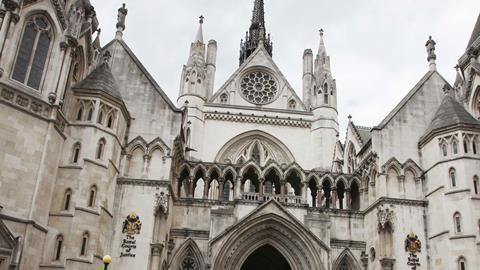The High Court has served notice to solicitors to submit complete invoices after it backed a ruling that a statute bill served by a law firm should contain details of disbursements.
Mrs Justice Slade dismissed an appeal from London firm Richard Slade and Company concerning a dispute over 61 invoices issued to clients involved in right-of-way litigation. Of the invoices 43 were for solicitors’ fees only and 18 for disbursements only.
The former clients failed to pay the final four invoices, totalling £26,000, and sought assessment of all 61, but the firm contended that the application was out of time as invoices were more than a year old and as such statute bills.
In the Senior Courts Costs Office, Master James had ordered a hearing on this preliminary issue to determine whether the retainer, which ended in November 2016, permitted the rendering of interim statute bills. She had ruled that as the 61 individual bills did not contain both profit costs and disbursements for the period they covered, they were not interim statute bills.
In supporting that decision in Richard Slade and Company Solicitors v Boodia & Anor, Mrs Justice Slade effectively ordered there must be complete bills for each period presented by solicitors, and opened the way for all 61 bills to be assessed in this case.
The judge said the agreement between the parties expressly provides that the monthly bills of the solicitors’ profit costs are final, but they did not contain all the charges the client would have to pay. Referring to the first-instance judgment, Mrs Justice Slade said: ‘Master James could have but did not find that the retainer did not provide for delivery of interim statute bills.’
‘On the facts of this case none of the bills contained both profit costs and disbursements. On [the firm’s] argument, time for applying for an assessment of the bills runs from the date of delivery of each monthly costs bill. The court would be asked to make an assessment without knowing what disbursements had been paid or were liable to be paid by the solicitor.’
The judge added that to undertake an assessment of profit costs,without knowing what disbursements were for the same period, might deprive clients the information on which to decide whether to challenge the bill, for example where they suspect duplication of work by solicitor and counsel.
Robin Dunne, representing the law firm's clients, submitted it was ‘impossible’ for a client to challenge a bill when it was partially complete, and the status of earlier bills would not be statutory until the disbursement bills were presented.
The firm had contended that Master James was wrong to hold that claimants would find it hard to calculate the sum which was the subject of the statute bill, and so the statute bill did not have to contain disbursements. This ground, and four other arguments raised in the appeal, were dismissed by Mrs Justice Slade.




























4 Readers' comments